
ai-deadlines
:alarm_clock: AI conference deadline countdowns
Stars: 5580
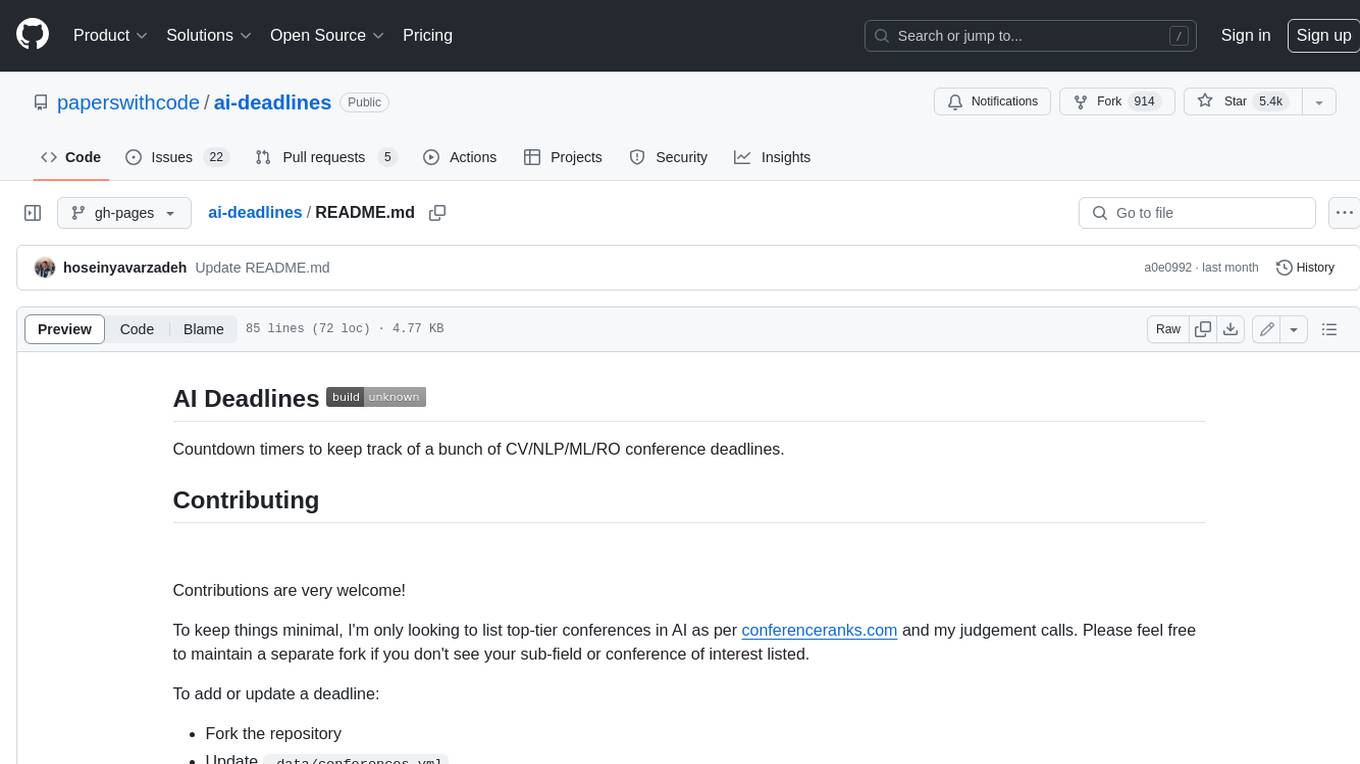
Countdown timers to keep track of a bunch of CV/NLP/ML/RO conference deadlines.
README:
Countdown timers to keep track of a bunch of CV/NLP/ML/RO conference deadlines.
Contributions are very welcome!
To keep things minimal, I'm only looking to list top-tier conferences in AI as per conferenceranks.com and my judgement calls. Please feel free to maintain a separate fork if you don't see your sub-field or conference of interest listed.
To add or update a deadline:
- Fork the repository
- Update
_data/conferences.yml - Make sure it has the
title,year,id,link,deadline,timezone,date,place,subattributes- See available timezone strings here.
- Optionally add a
noteandabstract_deadlinein case the conference has a separate mandatory abstract deadline - Optionally add
hindex(refers to h5-index from here) - Example:
- title: BestConf year: 2022 id: bestconf22 # title as lower case + last two digits of year full_name: Best Conference for Anything # full conference name link: link-to-website.com deadline: YYYY-MM-DD HH:SS abstract_deadline: YYYY-MM-DD HH:SS timezone: Asia/Seoul place: Incheon, South Korea date: September, 18-22, 2022 start: YYYY-MM-DD end: YYYY-MM-DD paperslink: link-to-full-paper-list.com pwclink: link-to-papers-with-code.com hindex: 100.0 sub: SP note: Important
- Send a pull request
- geodeadlin.es by @LukasMosser
- neuro-deadlines by @tbryn
- ai-challenge-deadlines by @dieg0as
- CV-oriented ai-deadlines (with an emphasis on medical images) by @duducheng
- es-deadlines (Embedded Systems, Computer Architecture, and Cyber-physical Systems) by @AlexVonB and @k0nze
- 2019-2020 International Conferences in AI, CV, DM, NLP and Robotics by @JackieTseng
- ccf-deadlines by @ccfddl
- networking-deadlines (Computer Networking, Measurement) by @andrewcchu
- ad-deadlines.com by @daniel-bogdoll
- sec-deadlines.github.io/ (Security and Privacy) by @clementfung
- pythondeadlin.es by @jesperdramsch
- deadlines.openlifescience.ai (Healthcare domain conferences and workshops) by @monk1337
- hci-deadlines.github.io (Human-Computer Interaction conferences) by @makinteract
- ds-deadlines.github.io (Distributed Systems, Event-based Systems, Performance, and Software Engineering conferences) by @ds-deadlines
- https://deadlines.cpusec.org/ (Computer Architecture-Security conferences) by @hoseinyavarzadeh
- se-deadlines.github.io (Software engineering conferences) by @sivanahamer and @imranur-rahman
- awesome-mlss (Machine Learning Summer Schools) by @sshkhr and @gmberton
This project is licensed under MIT.
It uses:
For Tasks:
Click tags to check more tools for each tasksFor Jobs:
Alternative AI tools for ai-deadlines
Similar Open Source Tools

ai-deadlines
Countdown timers to keep track of a bunch of CV/NLP/ML/RO conference deadlines.
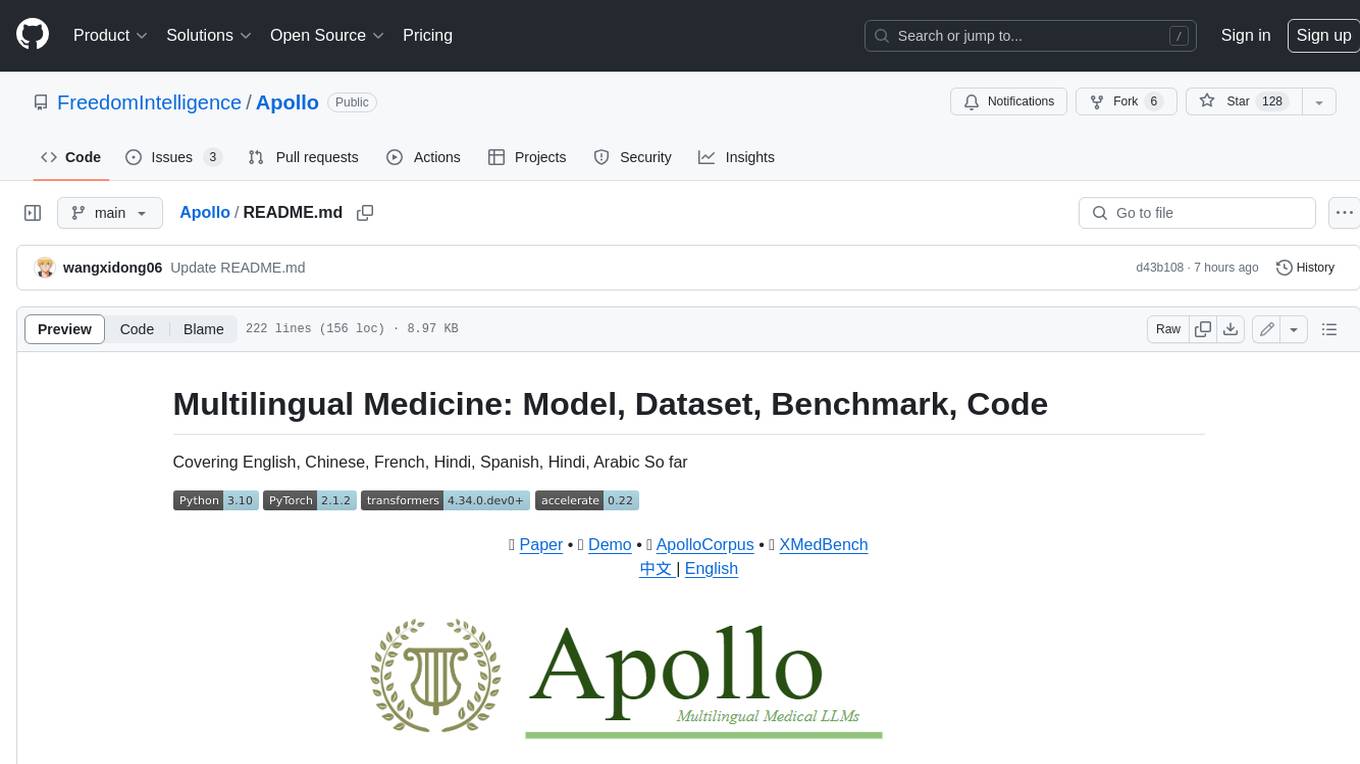
Apollo
Apollo is a multilingual medical LLM that covers English, Chinese, French, Hindi, Spanish, Hindi, and Arabic. It is designed to democratize medical AI to 6B people. Apollo has achieved state-of-the-art results on a variety of medical NLP tasks, including question answering, medical dialogue generation, and medical text classification. Apollo is easy to use and can be integrated into a variety of applications, making it a valuable tool for healthcare professionals and researchers.
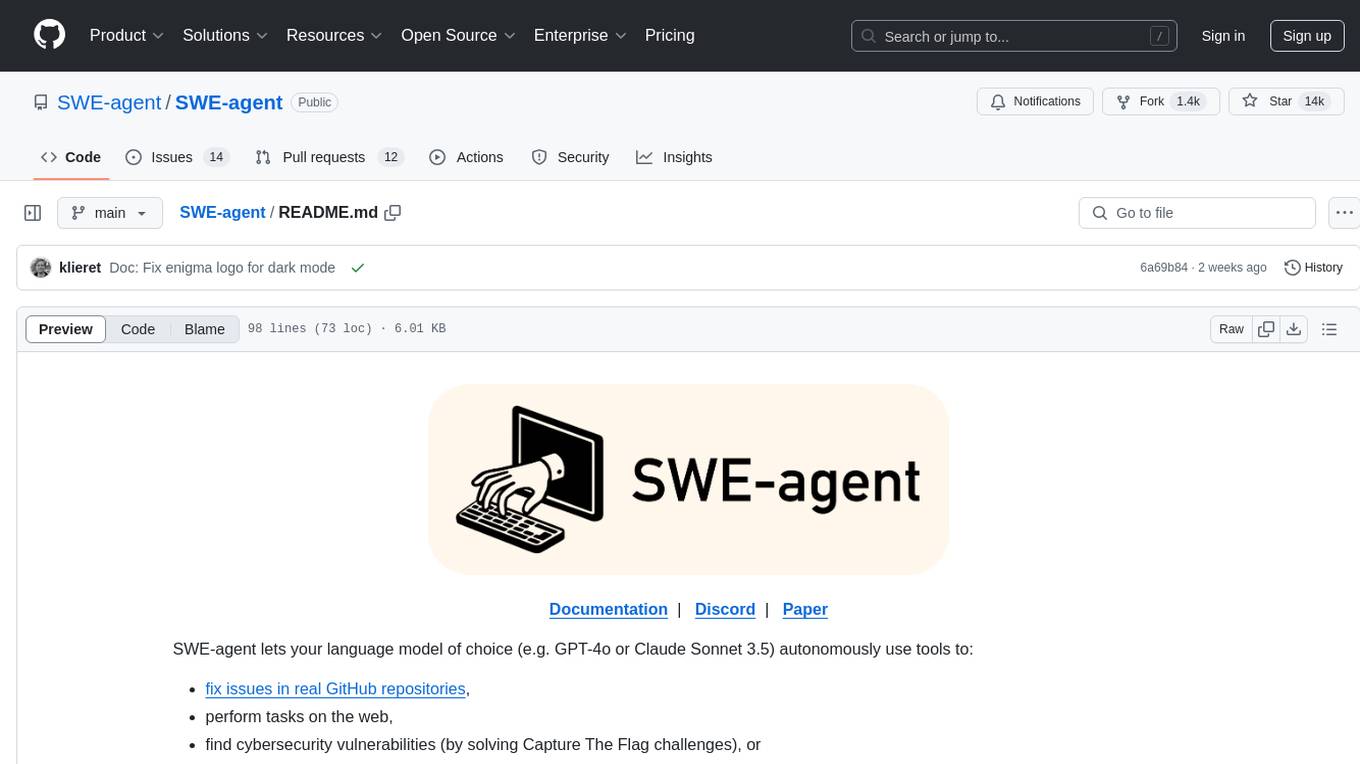
SWE-agent
SWE-agent is a tool that allows language models to autonomously fix issues in GitHub repositories, perform tasks on the web, find cybersecurity vulnerabilities, and handle custom tasks. It uses configurable agent-computer interfaces (ACIs) to interact with isolated computer environments. The tool is built and maintained by researchers from Princeton University and Stanford University.
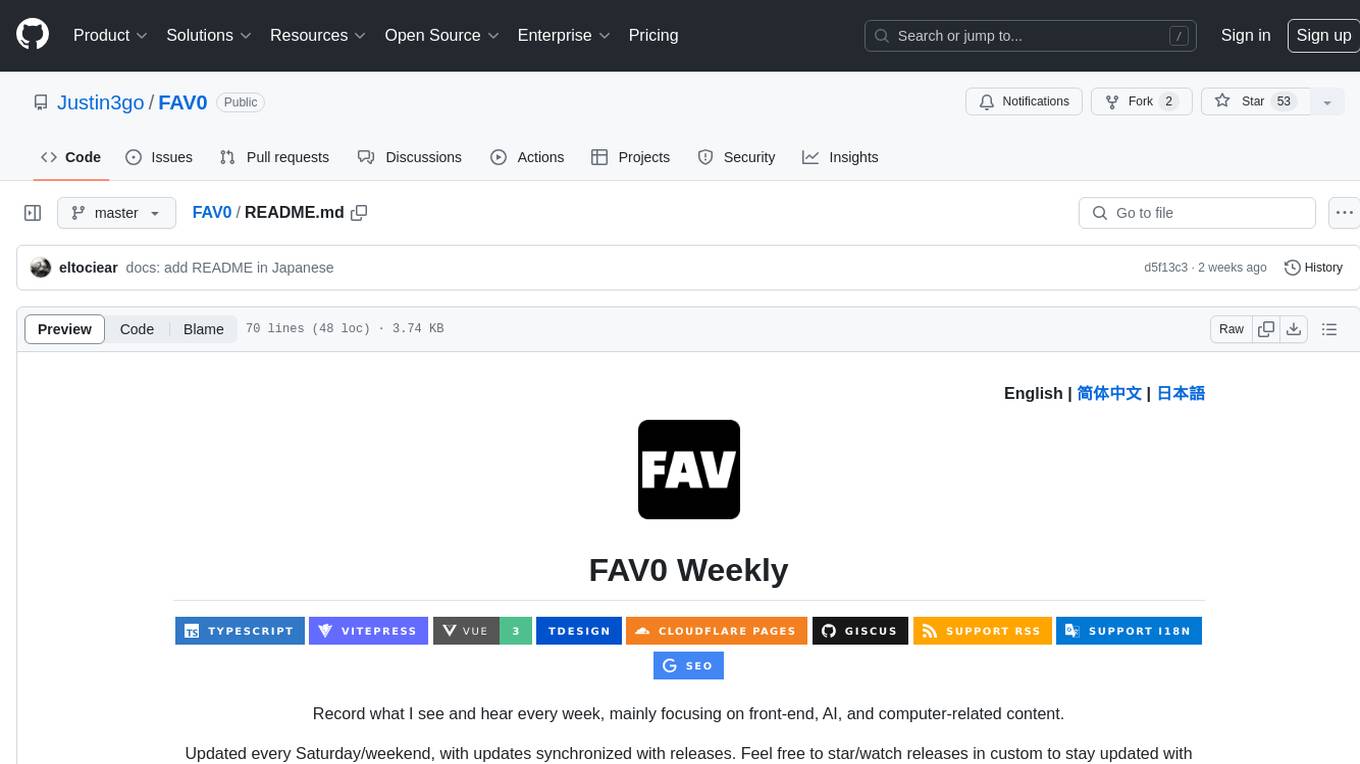
FAV0
FAV0 Weekly is a repository that records weekly updates on front-end, AI, and computer-related content. It provides light and dark mode switching, bilingual interface, RSS subscription function, Giscus comment system, high-definition image preview, font settings customization, and SEO optimization. Users can stay updated with the latest weekly releases by starring/watching the repository. The repository is dual-licensed under the MIT License and CC-BY-4.0 License.
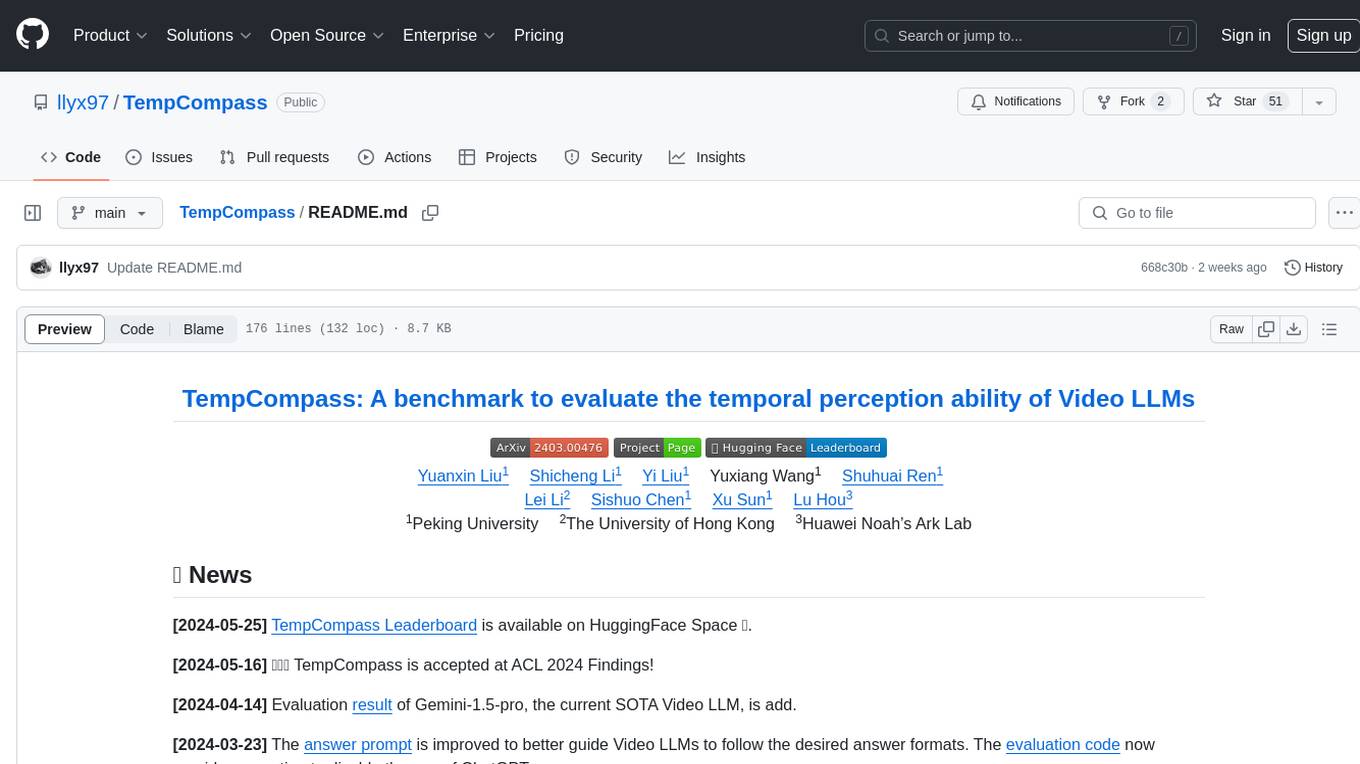
TempCompass
TempCompass is a benchmark designed to evaluate the temporal perception ability of Video LLMs. It encompasses a diverse set of temporal aspects and task formats to comprehensively assess the capability of Video LLMs in understanding videos. The benchmark includes conflicting videos to prevent models from relying on single-frame bias and language priors. Users can clone the repository, install required packages, prepare data, run inference using examples like Video-LLaVA and Gemini, and evaluate the performance of their models across different tasks such as Multi-Choice QA, Yes/No QA, Caption Matching, and Caption Generation.

autogen
AutoGen is a framework that enables the development of LLM applications using multiple agents that can converse with each other to solve tasks. AutoGen agents are customizable, conversable, and seamlessly allow human participation. They can operate in various modes that employ combinations of LLMs, human inputs, and tools.
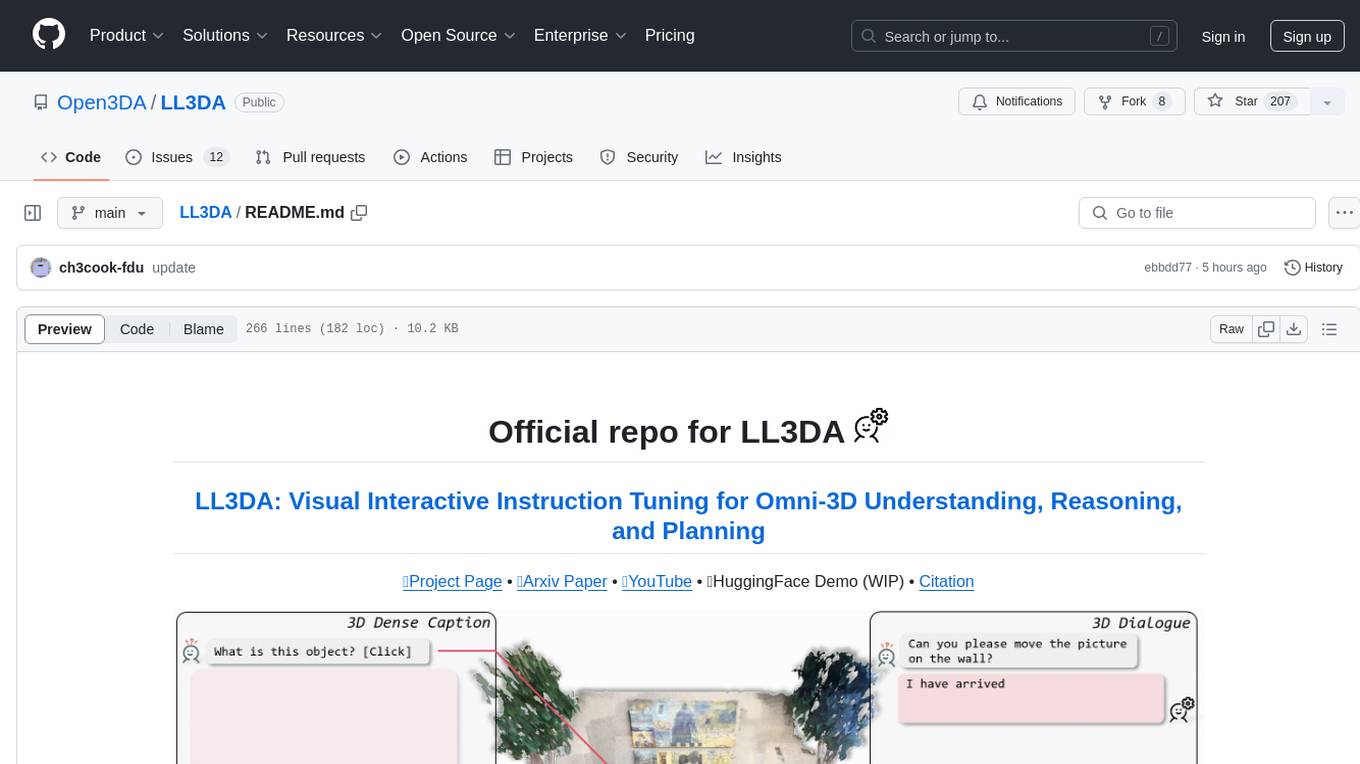
LL3DA
LL3DA is a Large Language 3D Assistant that responds to both visual and textual interactions within complex 3D environments. It aims to help Large Multimodal Models (LMM) comprehend, reason, and plan in diverse 3D scenes by directly taking point cloud input and responding to textual instructions and visual prompts. LL3DA achieves remarkable results in 3D Dense Captioning and 3D Question Answering, surpassing various 3D vision-language models. The code is fully released, allowing users to train customized models and work with pre-trained weights. The tool supports training with different LLM backends and provides scripts for tuning and evaluating models on various tasks.

biochatter
Generative AI models have shown tremendous usefulness in increasing accessibility and automation of a wide range of tasks. This repository contains the `biochatter` Python package, a generic backend library for the connection of biomedical applications to conversational AI. It aims to provide a common framework for deploying, testing, and evaluating diverse models and auxiliary technologies in the biomedical domain. BioChatter is part of the BioCypher ecosystem, connecting natively to BioCypher knowledge graphs.
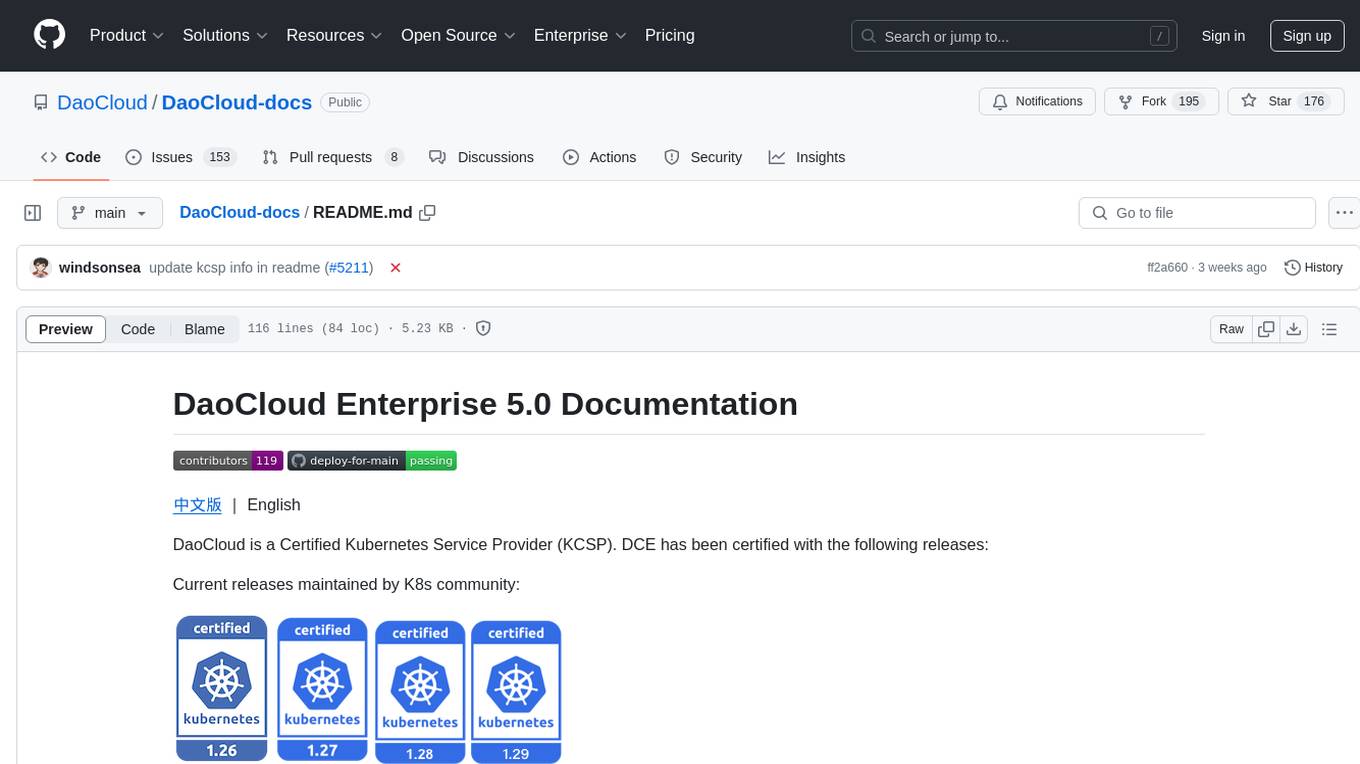
DaoCloud-docs
DaoCloud Enterprise 5.0 Documentation provides detailed information on using DaoCloud, a Certified Kubernetes Service Provider. The documentation covers current and legacy versions, workflow control using GitOps, and instructions for opening a PR and previewing changes locally. It also includes naming conventions, writing tips, references, and acknowledgments to contributors. Users can find guidelines on writing, contributing, and translating pages, along with using tools like MkDocs, Docker, and Poetry for managing the documentation.
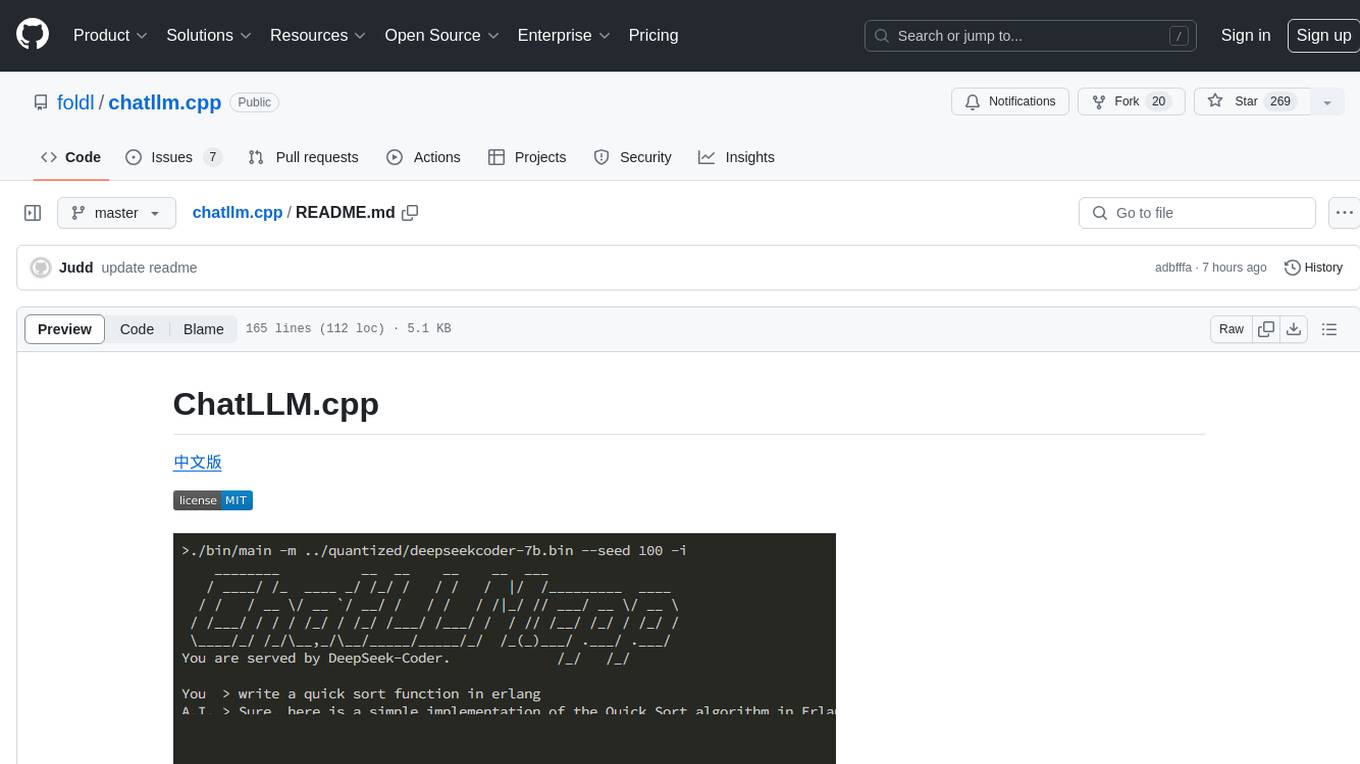
chatllm.cpp
ChatLLM.cpp is a pure C++ implementation tool for real-time chatting with RAG on your computer. It supports inference of various models ranging from less than 1B to more than 300B. The tool provides accelerated memory-efficient CPU inference with quantization, optimized KV cache, and parallel computing. It allows streaming generation with a typewriter effect and continuous chatting with virtually unlimited content length. ChatLLM.cpp also offers features like Retrieval Augmented Generation (RAG), LoRA, Python/JavaScript/C bindings, web demo, and more possibilities. Users can clone the repository, quantize models, build the project using make or CMake, and run quantized models for interactive chatting.
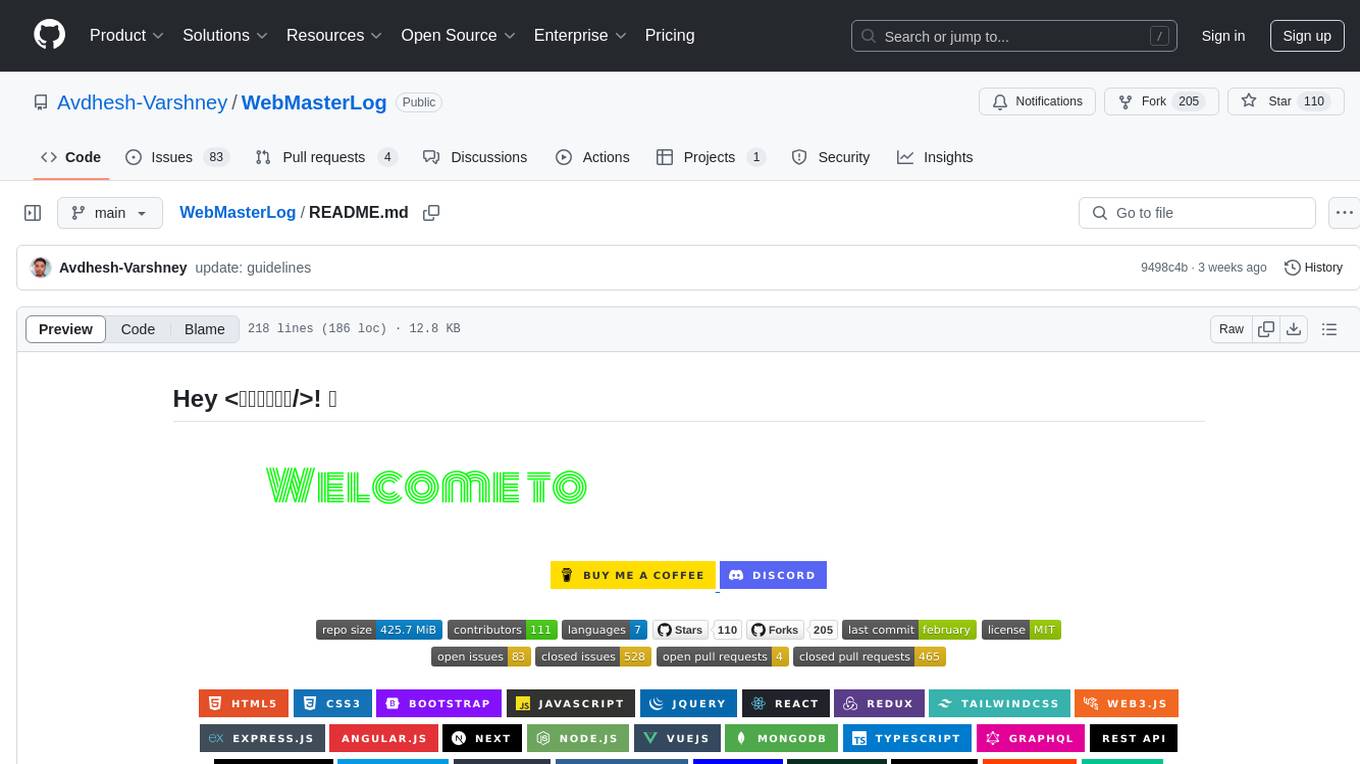
WebMasterLog
WebMasterLog is a comprehensive repository showcasing various web development projects built with front-end and back-end technologies. It highlights interactive user interfaces, dynamic web applications, and a spectrum of web development solutions. The repository encourages contributions in areas such as adding new projects, improving existing projects, updating documentation, fixing bugs, implementing responsive design, enhancing code readability, and optimizing project functionalities. Contributors are guided to follow specific guidelines for project submissions, including directory naming conventions, README file inclusion, project screenshots, and commit practices. Pull requests are reviewed based on criteria such as proper PR template completion, originality of work, code comments for clarity, and sharing screenshots for frontend updates. The repository also participates in various open-source programs like JWOC, GSSoC, Hacktoberfest, KWOC, 24 Pull Requests, IWOC, SWOC, and DWOC, welcoming valuable contributors.
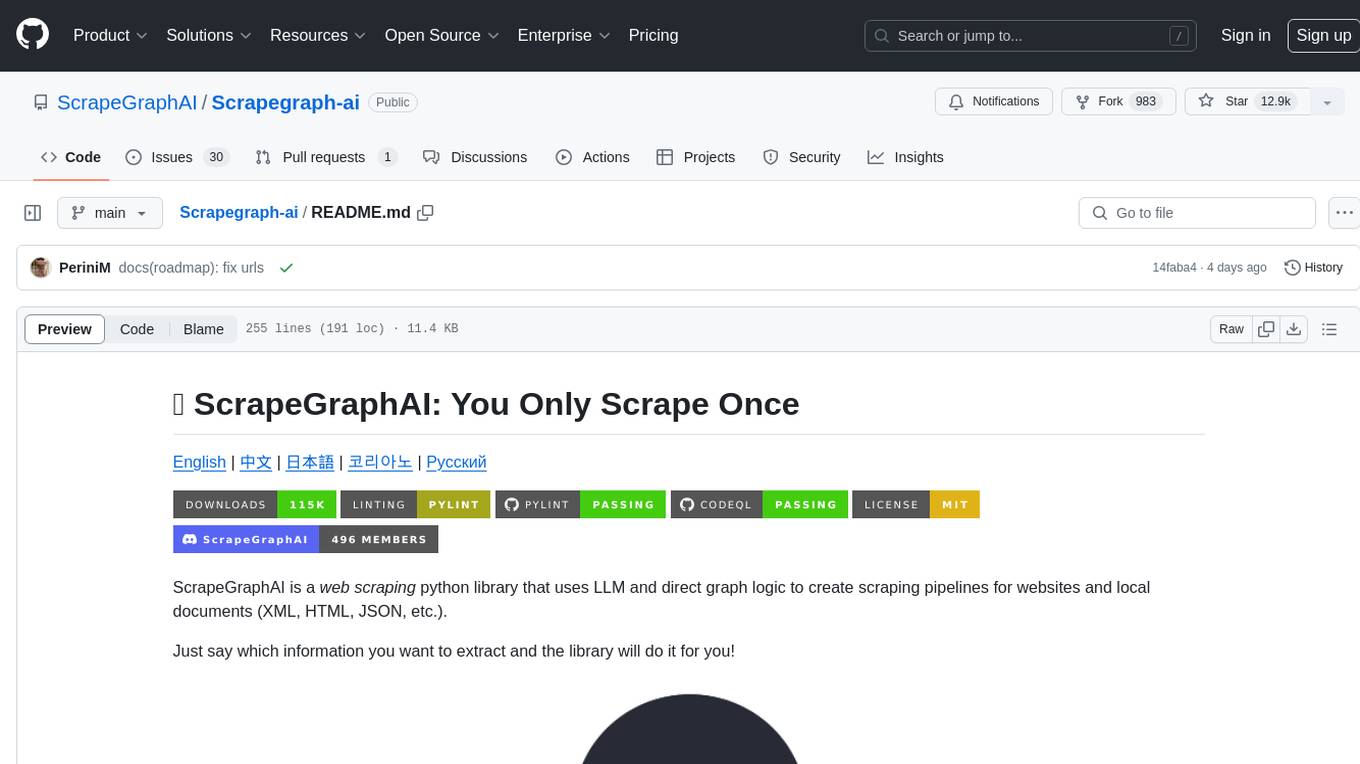
Scrapegraph-ai
ScrapeGraphAI is a web scraping Python library that utilizes LLM and direct graph logic to create scraping pipelines for websites and local documents. It offers various standard scraping pipelines like SmartScraperGraph, SearchGraph, SpeechGraph, and ScriptCreatorGraph. Users can extract information by specifying prompts and input sources. The library supports different LLM APIs such as OpenAI, Groq, Azure, and Gemini, as well as local models using Ollama. ScrapeGraphAI is designed for data exploration and research purposes, providing a versatile tool for extracting information from web pages and generating outputs like Python scripts, audio summaries, and search results.

auto-news
Auto-News is an automatic news aggregator tool that utilizes Large Language Models (LLM) to pull information from various sources such as Tweets, RSS feeds, YouTube videos, web articles, Reddit, and journal notes. The tool aims to help users efficiently read and filter content based on personal interests, providing a unified reading experience and organizing information effectively. It features feed aggregation with summarization, transcript generation for videos and articles, noise reduction, task organization, and deep dive topic exploration. The tool supports multiple LLM backends, offers weekly top-k aggregations, and can be deployed on Linux/MacOS using docker-compose or Kubernetes.
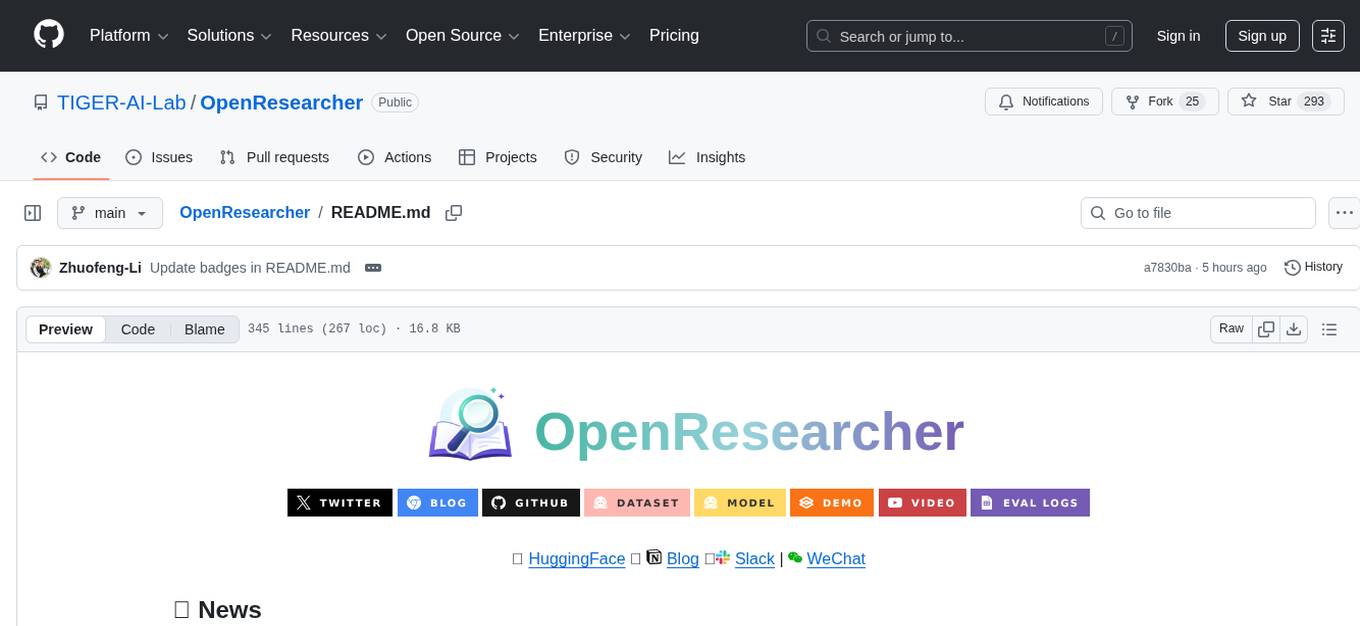
OpenResearcher
OpenResearcher is a fully open agentic large language model designed for long-horizon deep research scenarios. It achieves an impressive 54.8% accuracy on BrowseComp-Plus, surpassing performance of GPT-4.1, Claude-Opus-4, Gemini-2.5-Pro, DeepSeek-R1, and Tongyi-DeepResearch. The tool is fully open-source, providing the training and evaluation recipe—including data, model, training methodology, and evaluation framework for everyone to progress deep research. It offers features like a fully open-source recipe, highly scalable and low-cost generation of deep research trajectories, and remarkable performance on deep research benchmarks.
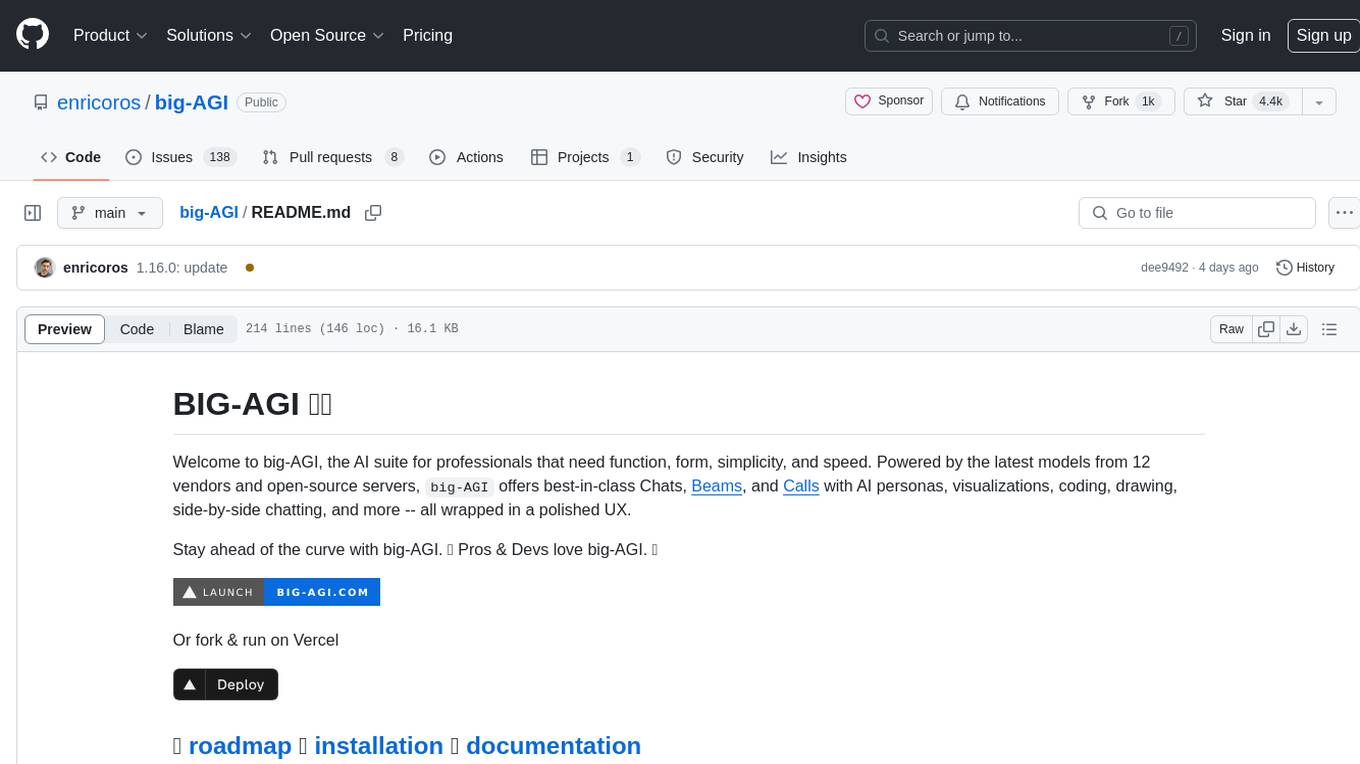
big-AGI
big-AGI is an AI suite designed for professionals seeking function, form, simplicity, and speed. It offers best-in-class Chats, Beams, and Calls with AI personas, visualizations, coding, drawing, side-by-side chatting, and more, all wrapped in a polished UX. The tool is powered by the latest models from 12 vendors and open-source servers, providing users with advanced AI capabilities and a seamless user experience. With continuous updates and enhancements, big-AGI aims to stay ahead of the curve in the AI landscape, catering to the needs of both developers and AI enthusiasts.
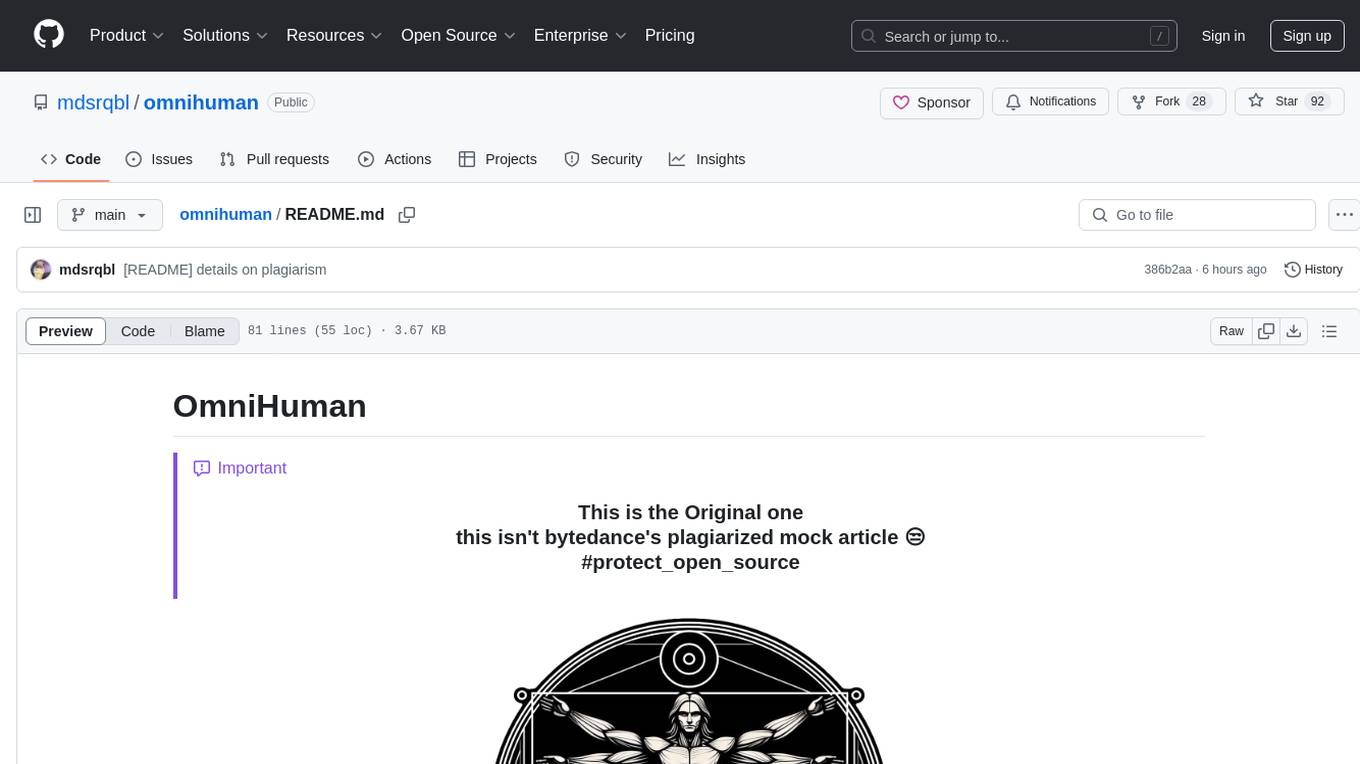
omnihuman
OmniHuman is an AI model designed to understand humanoids and text. It provides functionalities to process images and videos, generating text descriptions for human actions depicted in the visual content. The tool offers support for various tasks related to human pose recognition and action understanding. Users can easily integrate OmniHuman into their projects to enhance the capabilities of their applications in recognizing and interpreting human actions in images and videos.
For similar tasks

ai-deadlines
Countdown timers to keep track of a bunch of CV/NLP/ML/RO conference deadlines.
For similar jobs

spear
SPEAR (Simulator for Photorealistic Embodied AI Research) is a powerful tool for training embodied agents. It features 300 unique virtual indoor environments with 2,566 unique rooms and 17,234 unique objects that can be manipulated individually. Each environment is designed by a professional artist and features detailed geometry, photorealistic materials, and a unique floor plan and object layout. SPEAR is implemented as Unreal Engine assets and provides an OpenAI Gym interface for interacting with the environments via Python.

openvino
OpenVINO™ is an open-source toolkit for optimizing and deploying AI inference. It provides a common API to deliver inference solutions on various platforms, including CPU, GPU, NPU, and heterogeneous devices. OpenVINO™ supports pre-trained models from Open Model Zoo and popular frameworks like TensorFlow, PyTorch, and ONNX. Key components of OpenVINO™ include the OpenVINO™ Runtime, plugins for different hardware devices, frontends for reading models from native framework formats, and the OpenVINO Model Converter (OVC) for adjusting models for optimal execution on target devices.
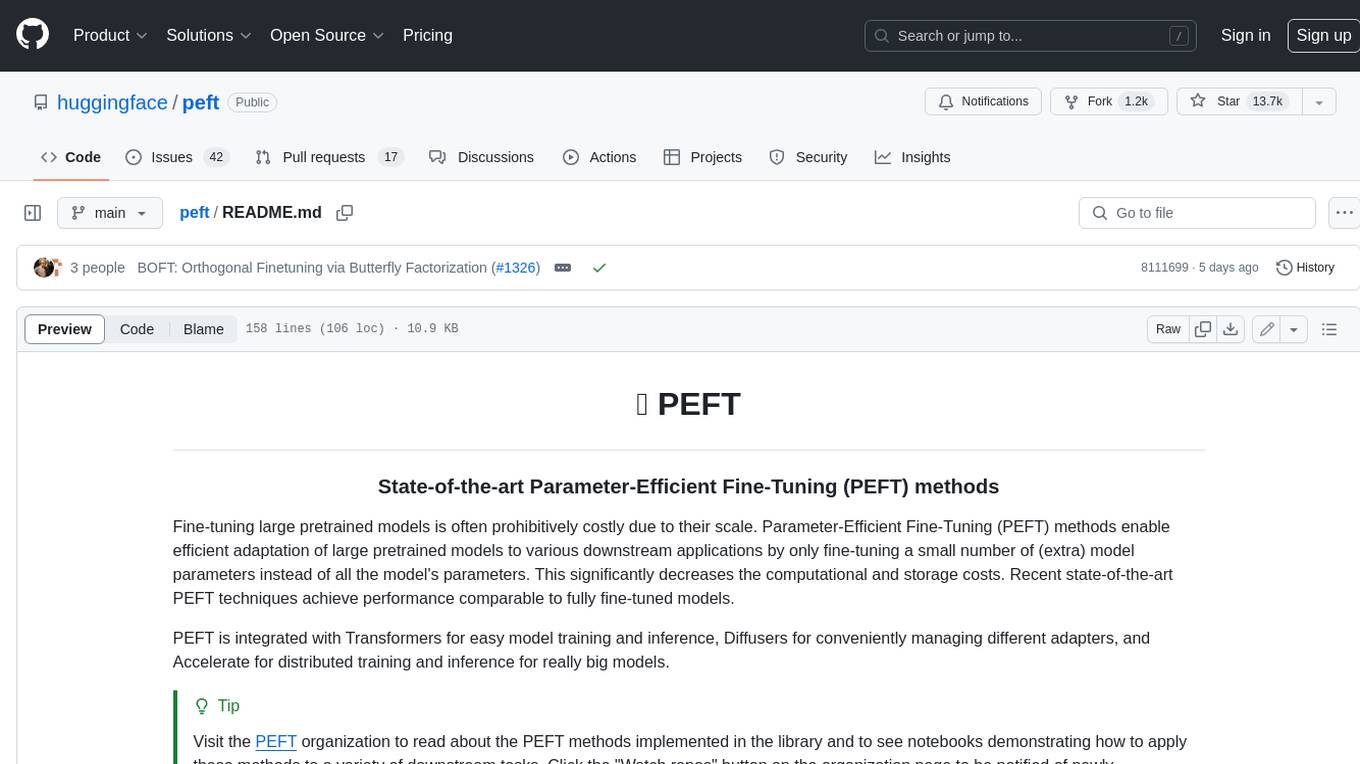
peft
PEFT (Parameter-Efficient Fine-Tuning) is a collection of state-of-the-art methods that enable efficient adaptation of large pretrained models to various downstream applications. By only fine-tuning a small number of extra model parameters instead of all the model's parameters, PEFT significantly decreases the computational and storage costs while achieving performance comparable to fully fine-tuned models.
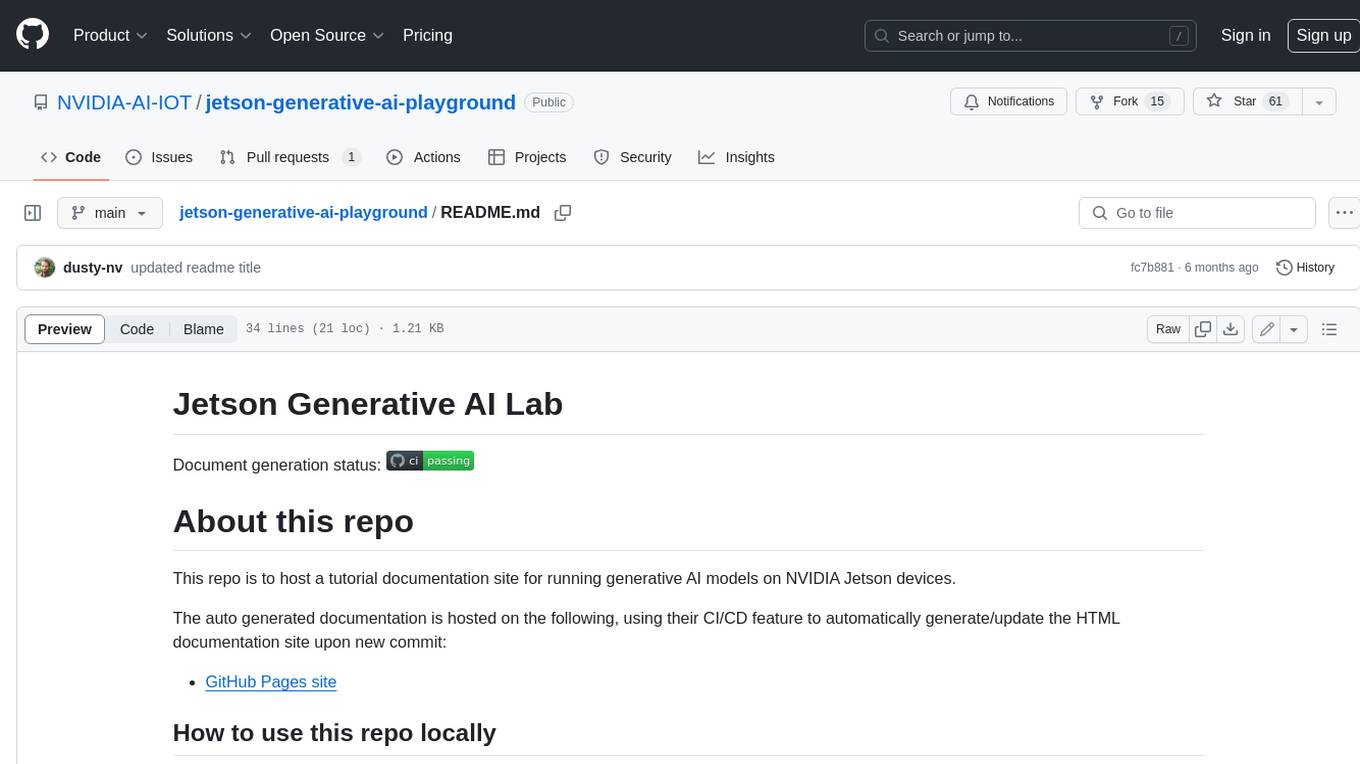
jetson-generative-ai-playground
This repo hosts tutorial documentation for running generative AI models on NVIDIA Jetson devices. The documentation is auto-generated and hosted on GitHub Pages using their CI/CD feature to automatically generate/update the HTML documentation site upon new commits.
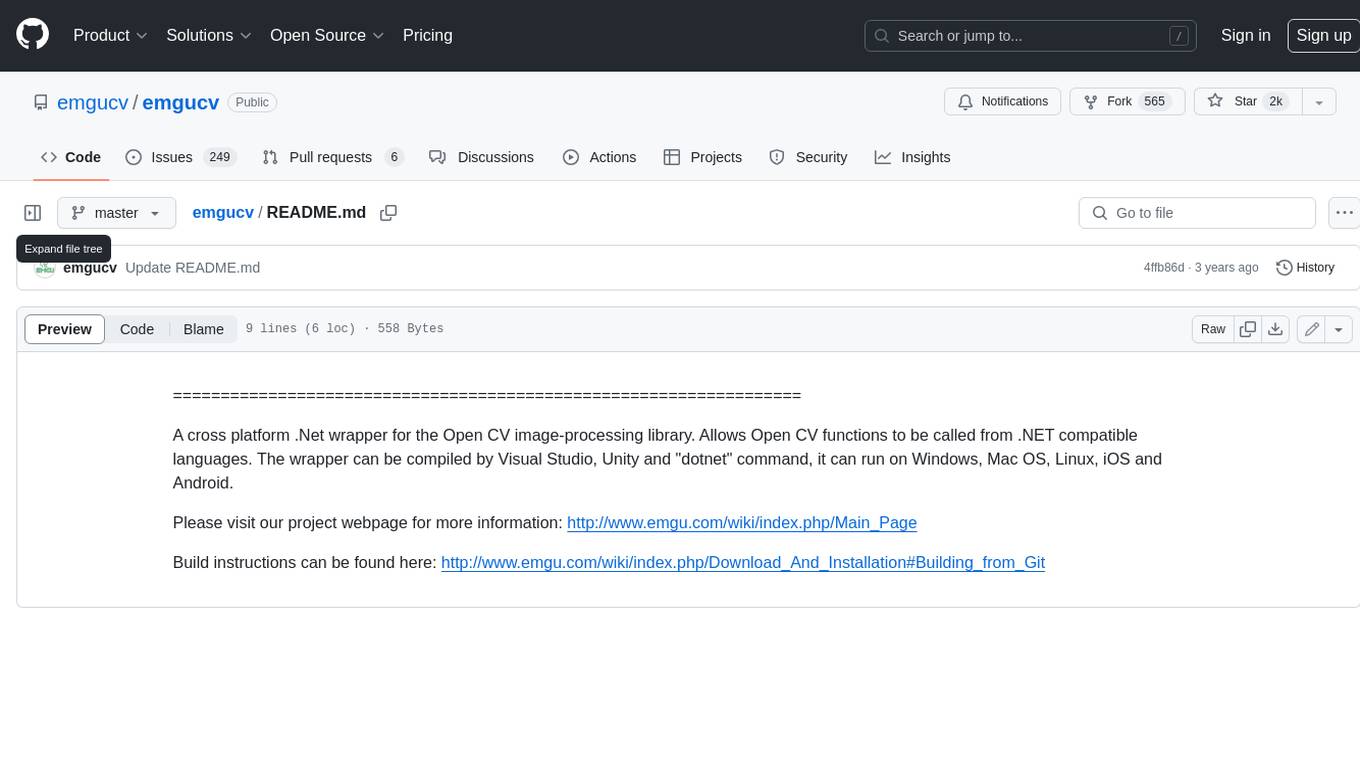
emgucv
Emgu CV is a cross-platform .Net wrapper for the OpenCV image-processing library. It allows OpenCV functions to be called from .NET compatible languages. The wrapper can be compiled by Visual Studio, Unity, and "dotnet" command, and it can run on Windows, Mac OS, Linux, iOS, and Android.
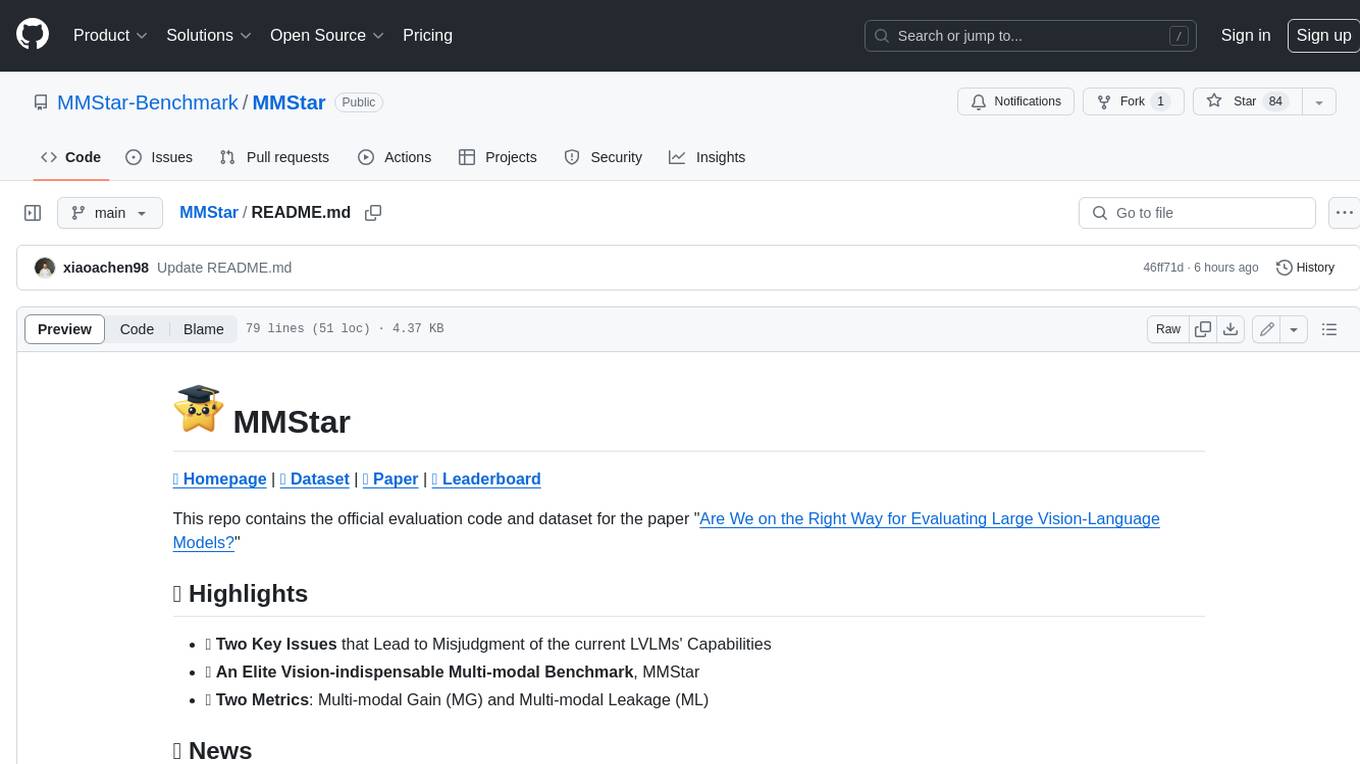
MMStar
MMStar is an elite vision-indispensable multi-modal benchmark comprising 1,500 challenge samples meticulously selected by humans. It addresses two key issues in current LLM evaluation: the unnecessary use of visual content in many samples and the existence of unintentional data leakage in LLM and LVLM training. MMStar evaluates 6 core capabilities across 18 detailed axes, ensuring a balanced distribution of samples across all dimensions.
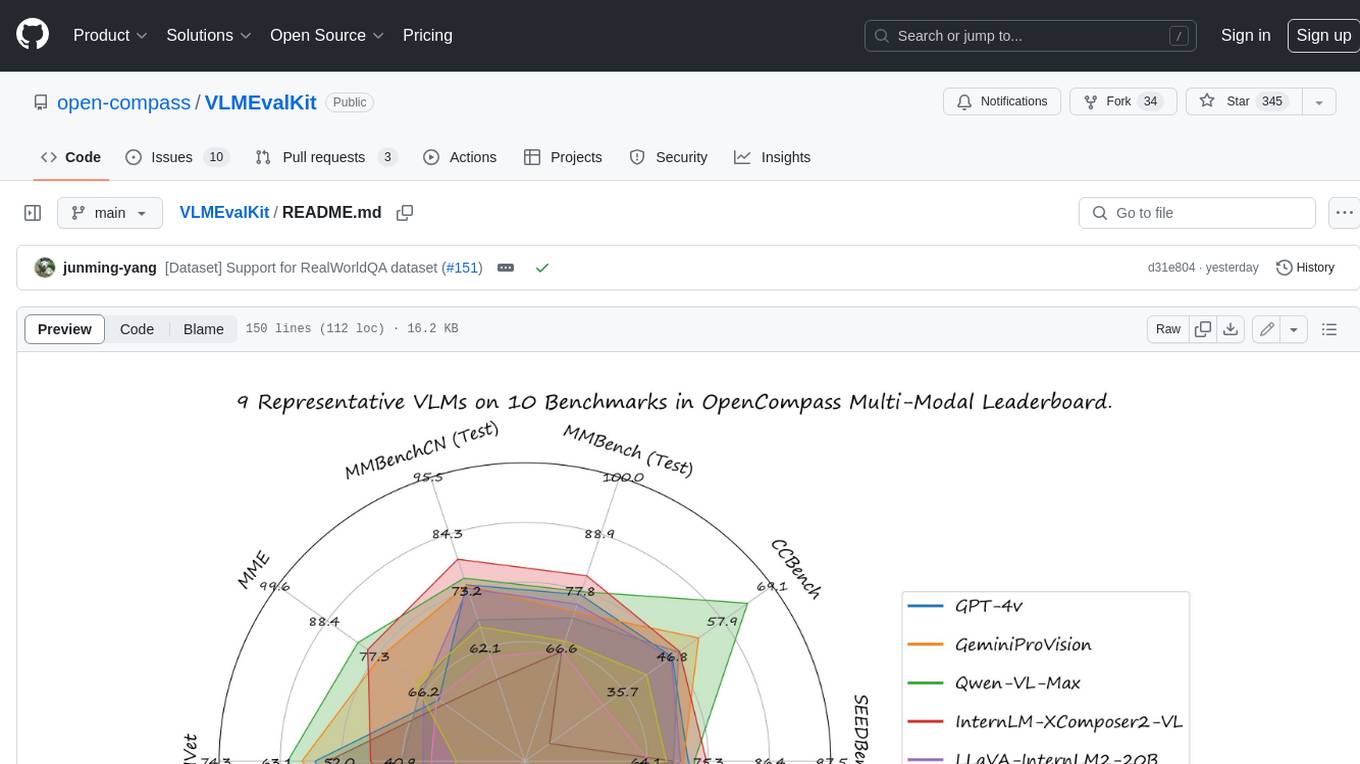
VLMEvalKit
VLMEvalKit is an open-source evaluation toolkit of large vision-language models (LVLMs). It enables one-command evaluation of LVLMs on various benchmarks, without the heavy workload of data preparation under multiple repositories. In VLMEvalKit, we adopt generation-based evaluation for all LVLMs, and provide the evaluation results obtained with both exact matching and LLM-based answer extraction.

llava-docker
This Docker image for LLaVA (Large Language and Vision Assistant) provides a convenient way to run LLaVA locally or on RunPod. LLaVA is a powerful AI tool that combines natural language processing and computer vision capabilities. With this Docker image, you can easily access LLaVA's functionalities for various tasks, including image captioning, visual question answering, text summarization, and more. The image comes pre-installed with LLaVA v1.2.0, Torch 2.1.2, xformers 0.0.23.post1, and other necessary dependencies. You can customize the model used by setting the MODEL environment variable. The image also includes a Jupyter Lab environment for interactive development and exploration. Overall, this Docker image offers a comprehensive and user-friendly platform for leveraging LLaVA's capabilities.







